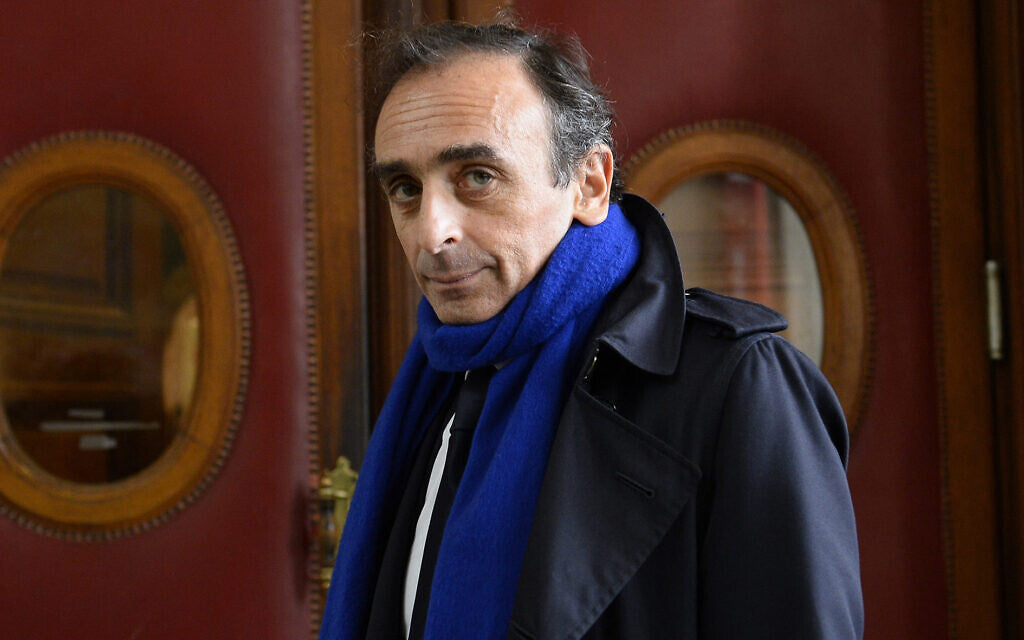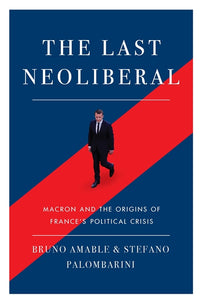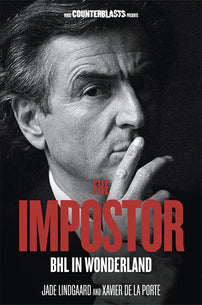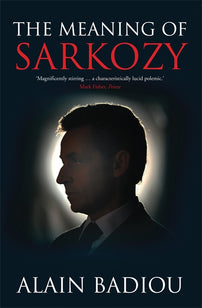"France's Reactionary Intellectual Class" - An Extract from Reactionary Democracy
Aurelien Mondon and Aaron Winter wrote about Eric Zemmour, the far-right political sensation currently surging in French presidential polls, in their book Reactionary Democracy (2020). Check out this extract to learn more about Zemmour and the reactionary politics he's brought to the mainstream in France.

Aurelien Mondon and Aaron Winter
**NB: The following is an extract from Reactionary Democracy: How Racism and the Populist Far Right Became Mainstream, published by Verso Books last year.
***
One of the most prominent legitimisers of liberal racism has been Eric Zemmour. Starting as a journalist for the right- wing Le Figaro, he later turned to writing and political punditry, providing a reactionary voice in countless mainstream media outlets, from political shows to infotainment. Benefiting from Zemmour’s ‘shocking’ ideas and unapologetic style, producers have provided him with platforms that few commentators could access. Eventually, some publicly declared that they regretted having given so much air-time to him and his ideas; but this was too little, too late. Zemmour’s reactionary positions were hardly concealed and in fact developed openly in a number of books. In 2006, he published Le Premier Sexe, a response to Simone de Beauvoir’s Le Deuxième Sexe, in which he developed a masculinist argument that has become commonplace today on the far right. For Zemmour, feminism and homosexuality have emasculated the west, which has since been overtaken by a virile other: the Muslim man. We can see here that, while Islam acts as the liberal-racist decoy, the ideological basis of the book is distinctly illiberal. It is despite such racist and sexist arguments that Zemmour has gained increased prominence in recent years.
In late 2014, he published The French Suicide, a 500-page book which tracks the slow demise of France in a fashion reminiscent of traditional far-right theories and strategies, suggesting the need for rebirth.[1] May 1968 is blamed for having destroyed authority and led to self-hatred. While it was well received by the right-wing press, the book was criticised for pushing an agenda close to that of the Front National, which did not prevent hundreds of thousands of copies of the book to be sold. Academics were quick to point out the many mistakes it contained. Its most telling reactionary component was probably its chapter about Robert Paxton – the American historian who played a major part in the early 1970s in proving beyond doubt that the Vichy government had collaborated willingly and ideologically with Nazi Germany. This was a defining moment in French history and historiography. It forced the French to take a more honest look at their country’s role in the Second World War, and dealt a decisive blow to the idea that evil was confined to a particular place and time: Nazi Germany. Reviving widely discarded theories casting General de Gaulle as the sword to Marshal Pétain’s shield, Zemmour argued that the Vichy regime had protected the French Jewish population. A similar argument has commonly been deployed in France by the right, in particular with regard to colonialism and the so-called ‘culture of repentance’, which prevents ‘us’ from moving forward. Unsurprisingly, part of Zemmour’s book purveyed shoddy demographic statistics, exaggerating or misreading data on immigration and its growth.[2] In 2018, Zemmour was found guilty of inciting religious hatred, having declared on television while launching a new book that Muslim people in France should ‘choose between Islam and France’, among other common Islamophobic tropes. In his view and that of his supporters, Zemmour had merely been using his freedom of speech. At the 2019 European elections, he was offered the opportunity to lead the Rassemblement National (formerly Front National) list – though he declined, feeling that he had more power outside party politics. Zemmour was again found guilty in September 2019 of incitation to religious hatred and offered a spot on a prominent new show on CNews a month later, only for this one to no longer be broadcast live after two weeks of ‘faux-pas’ (dérapages) on topics as diverse as Vichy, Bashar al-Assad and Zemmour’s belief that homosexuals should ‘sleep with the other sex’ if they want children.[3]
[book-strip index="1" style="display"]In this context, the borders have become increasingly fuzzy between liberal and illiberal racism. Extreme-right intellectuals such as Renaud Camus have since gained access to more mainstream platforms – most notably in the wake of the Christchurch attack, whose perpetrator, Brenton Tarrant, made use of Camus’ ‘Great Replacement Theory’ in the title of his manifesto.
The French case demonstrates that the most vociferous reactionary intellectuals not only complain constantly of being silenced by the hegemonic left, but can also benefit from countless media outlets – whether as a product of ratings opportunism or ideological complicity.[4] Of course, one could argue that we have the media we deserve – that its contents reflect what the public thinks or wants. Yet in our view this is a convenient excuse for those overseeing public discourse to escape their responsibility for the spread of reactionary ideas.
[1] Eric Zemmour, Le Suicide Français (Paris: Albin Michel, 2014).
[2] Benoît Bréville, ‘Immigration, un débat biaisé’ Le Monde Diplomatique, November 2018.
[3] LeMonde.fr, ‘CNews: L’émission d’Eric Zemmour ne sera plus en direct’, Le Monde. 29 October. Our translation.
[4] Blanc, Chéry and Naudin, Les historiens de garde, pp. 133–7.





